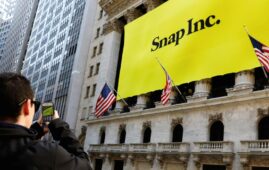



For years, Uber used a secretive software tool known internally as “Greyball” to identify and steer its drivers clear of potential threats ― including law enforcement officers hoping to catch Uber operating in their cities illegally.
UPDATE: March 9 ― Uber chief security officer Joe Sullivan announced late Wednesday that the company is reviewing its use of “greyballing” technology and “expressly prohibiting its use to target action by local regulators going forward.”
Earlier:
According to The New York Times, which first reported the story, the company deployed the software in cities that deemed the ride-hailing service illegal or otherwise tried to slow the company’s rapid expansion.
The Times reports that Uber’s software clues into a number of signs from prospective riders to determine whether they might pose a threat to the company or its drivers, notably in the form of enforcement officers trying to catch Uber operating illegally.
This includes the rider’s behavior using the app itself, such as the phone type, and patterns in the frequency of its use. Another clear tell: interacting with the app in close proximity to police stations and other government buildings.
In 2014, for instance, officials in Portland, Oregon, sued Uber for operating in the city illegally, and promised to hit every driver caught working for the service with a fine of up to $3,750.
The threat accomplished little, as Uber continued operating anyway. Portland officers pushed forward with sting operations in an attempt to catch the unlicensed operators, yet were stymied as drivers repeatedly canceled their rides, as this 2014 video by The Oregonian demonstrates:
“There were two drivers that were available at one point in time, and they both canceled on me,” Portland Code Enforcement Officer Erich England comments in the video, giving a perplexed shrug. “Now there are no drivers available.”
Portland Commissioner Dan Saltzman acknowledged the city’s relationship with Uber was “pretty tumultuous” in 2014, but he told The Huffington Post that doesn’t excuse the company’s behavior.
“I’m appalled that Uber would direct its employees to work on developing software to deliberately thwart the efforts of Portland, and no doubt other cities,” Saltzman told HuffPost. He characterized the city’s regulatory efforts as dedicated to “the safety and wellbeing of our citizens and our tourists.”
Portland and Uber smoothed over their relationship in 2015, but Saltzman said the city would consider levying fines or banning the company (again), should it run afoul of regulations.


Saint Francis High School just taught.


Comcast Corp’s (CMCSA.O) NBCUniversal said on.


Donald Trump is president, like it.


PARIS/FRANKFURT (Reuters) – PSA Group has.
Leave a Comment